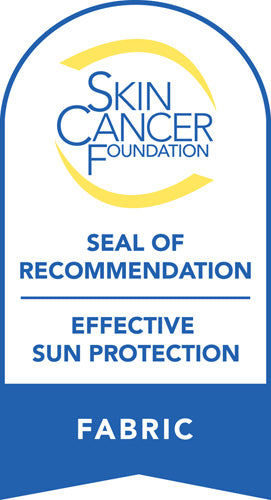What Makes Clothing Sun Protective? An Overview
An estimated 5.4 million squamous and basal cell skin cancers are diagnosed each year here in the United States. The more sun exposure you get, the higher your risk.
Thankfully, there are many ways to protect yourself from UV damage. Not only can you wear sunscreen, but sun-protective clothing makes sure you're well covered.
If you're interested in learning more, keep reading. We'll go over what makes this particular type of clothing so different and how it benefits you.
What Is UPF Clothing?
Sun protective clothing, also known as UPF clothing, is apparel designed to block the sun's harmful UV rays. UPF stands for ultraviolet protection factor.
Clothing is the best way to protect yourself from sunburn and damage, but this special apparel goes a step further.
Typically, people may throw on a swimsuit coverup or a lightweight shirt while on the beach or outside. However, there are now high-tech fabrics that reflect radiation and prevent some penetration.
For instance, our BloqTek fabric stops 98% of UV rays. Our clothing is also lab tested to ensure results.
Certain colors have higher UPF levels, which we'll cover later.
How Does It Work?
UV protective clothing uses special fabrics for optimal efficiency. You're protected both on land and in the water since it works both wet and dry.
Sunscreen, on the other hand, might be water-resistant but you'll need to reapply it. Another important distinction is that UPF clothing protects you from UVA and UVB rays. The SPF rating on sunscreen only refers to UVB rays.
It's crucial to state that not all sun-protective clothes are created equal. You want to ensure that the apparel you buy won't harm you or the environment.
Some manufacturers create clothes with chemicals that might initially protect you from the sun but they will wash out and into the environment. Lower-quality sun protective clothing will lose its efficiency over time as this happens.
Our BloqTek clothing uses safe, non-toxic chemicals in the production process, and they are water-soluble. We strive to protect people as well as the environment. Our clothes also don't lose effectiveness over time as it's the fabric technology that makes them work, so it's safe to wash them.
Our tops, bottoms, and accessories are lightweight, moisture-wicking, quick dry, and antimicrobial, making them perfect for a variety of outdoor activities. You'll stay cool and comfortable and you can rest easy knowing you're protected.
Additionally, certain factors affect the efficiency of UV protection apparel, which we'll talk about next.
UPF Ratings
First of all, if you ever see garments labeled as SPF clothing, it's generally a red flag. SPF only refers to sunscreen, lotions, etc. Brands that use SPF ratings for clothing aren't offering full-spectrum protection.
Sun-protective clothing is always referred to as UPF clothing, as this is the rating system used to measure effectiveness. UPF measures a fabric's efficiency at blocking UVA and UVB rays. In short, it refers to how much radiation can penetrate the fabric and get to the skin.
The rating system breaks down into three categories. Good (15-24), Very Good (25-39), and Excellent (40-50+).
Our BloqUV apparel has a UPF 50+ rating. Clothes with a UPF of 50 only allow 1/50th of the sun's radiation through.
Densely woven fabrics provide better protection. Specific materials, such as polyester, reflect radiation.
A good test is to raise a garment up to the light and check to see how much sunlight gets through. The less you see, the better protected you'll be.
Color Matters
The color of your garments makes a difference as well. Darker colors absorb light while lighter colors reflect it. As such, darker colors can protect you more from UV rays while outside.
Vivid colors also help defend you against the sun. According to The Skin Cancer Foundation, a bright shade like red can be just as effective as black or navy blue.
The Benefits of Sun-Protective Clothing
So, why should you buy UPF clothing instead of only using sunscreen or regular garments you already have? Well, there are many benefits to this type of apparel.
Sunscreen has its downsides. Common chemicals used in these products wash off and into our waterways. Plus, these ingredients harm marine life such as coral, algae, dolphins, and fish.
You also have to reapply sunscreen often as it will eventually wash off and lose its effectiveness. In summer or in warmer climates, you can go through a lot of it! As such, you'll wind up spending a lot of money restocking your products.
High-quality UPF clothing lasts you for years. You can quickly put it on anytime you need it, and it's generally more effective than sunscreen. After a day on the beach or the golf course, simply wash it and it's ready for your next adventure.
UPF clothing is also safer for the environment. You don't have to worry about harming marine life, so you're doing your part for the planet.
Plus, you can combine an eco-safe sunscreen with UPF clothing for even more protection.
You can also find sun-protective clothes in a variety of styles for men, women, and kids. There are shirts, bottoms, dresses, accessories, and more to choose from. You can wear one outfit for your morning run and another for a backyard BBQ that same night.
No matter where you go, you'll stay safe and protected. Plus, since you should think about sun protection all year and not just in summer, you can easily stock up on garments in a variety of styles.
Stay Safe in the Sun
Hopefully, you know a little more about sun-protective clothing now and the many benefits of wearing it. Don't take sun damage lightly. It's best to keep yourself covered and protected with high-quality UPF apparel.
Staying safe in the sun requires protecting your skin both on land and in the water. That's why UPF clothing is so effective. It blocks much more of the sun's harmful rays than sunscreen alone.
Are you looking for some summer inspiration and garments to add to your wardrobe? You can find plenty of stylish options here at BloqUV. Browse our women's dresses to find stylish, performance pieces perfect for day or night.



